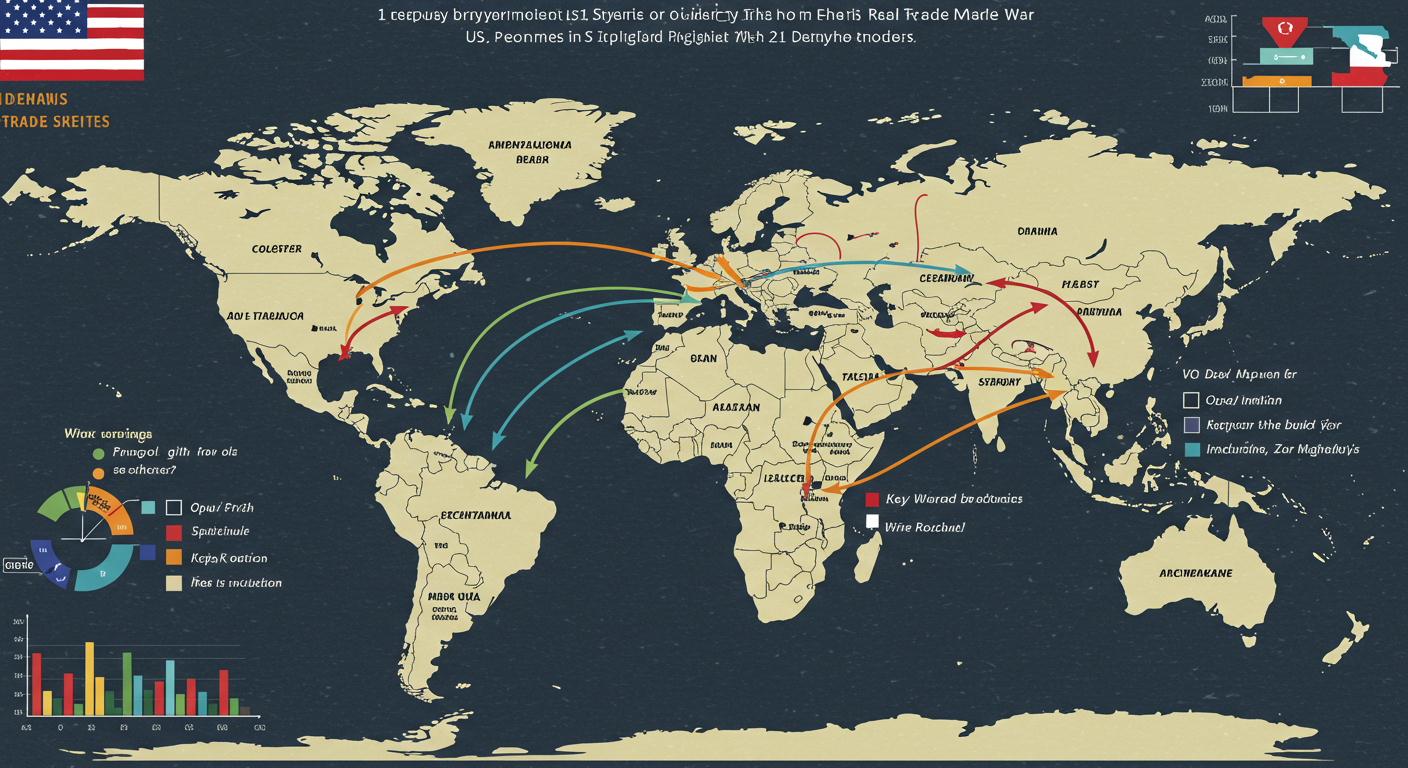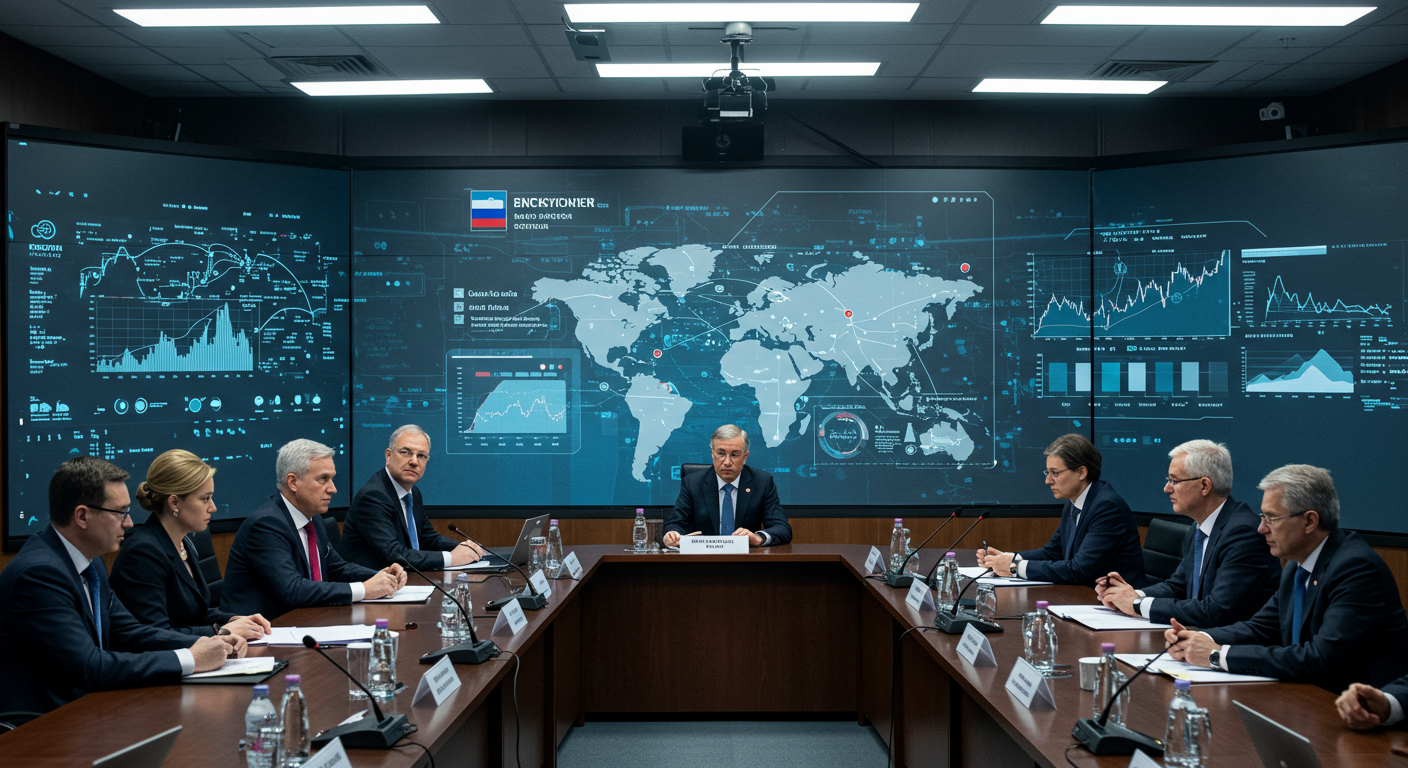The Role of BRICS in the New World Economic Order
The global economic landscape is undergoing significant transformation, and at the heart of this shift is the BRICS coalition—Brazil, Russia, India, China, and South Africa. These emerging economies are redefining the World Economic Order through their collaborative efforts and increasing geopolitical influence. As traditional economic powers adjust to these changes, understanding the role of BRICS is more crucial than ever.
In today’s interconnected world, BRICS nations are not only pivotal in shaping international trade but also in steering economic collaboration toward more inclusive global growth. Their collective strategies offer a counterbalance to Western-dominated financial systems, promising a new era of economic dynamics. This article delves into the multifaceted role of BRICS in the new economic landscape, examining their influence on global trade, energy futures, and geopolitical strategies.
Readers will gain insights into how BRICS is fostering a global economic shift, the implications for international trade, and the potential for future collaborations in renewable energy between the US and China. Through real-world examples and data analysis, this article aims to provide a comprehensive understanding of BRICS’ strategic importance.
The Rise of BRICS in Global Trade
BRICS has become a formidable force in international trade, leveraging its collective economic power to influence global markets. Together, these nations represent over 40% of the world’s population and nearly a quarter of the global GDP. By coordinating their trade policies and economic strategies, BRICS aims to create a more balanced and equitable global trade environment.
One significant initiative is the BRICS New Development Bank (NDB), established to support infrastructure and sustainable development projects in member countries and other emerging economies. The NDB’s focus on renewable energy projects reflects the coalition’s commitment to sustainable growth, demonstrating a shift towards clean energy solutions. This move is particularly relevant as the future of renewable energy in the US and China plays a crucial role in global energy transitions.
Moreover, BRICS countries are actively reducing their dependence on Western financial systems by promoting alternative payment mechanisms and currency swaps. This strategy not only enhances their economic sovereignty but also mitigates risks associated with currency volatility, thereby stabilizing international trade dynamics.
Economic Collaboration and Innovation
Economic collaboration among BRICS nations extends beyond trade to include technological innovation and industrial development. Initiatives such as the BRICS Science, Technology, and Innovation (STI) Framework Program foster joint research and development efforts, enhancing the technological capabilities of member states.
China’s Belt and Road Initiative (BRI) exemplifies this collaborative spirit, as it seeks to create a network of trade routes connecting Asia, Africa, and Europe. Through infrastructure investments and economic partnerships, the BRI aligns with BRICS’ broader goals of enhancing connectivity and economic integration across emerging markets.
Additionally, BRICS is investing in digital economies, recognizing the transformative power of technology in shaping future economic landscapes. By prioritizing digital infrastructure and innovation, these countries aim to position themselves at the forefront of the fourth industrial revolution, thereby cementing their roles as leaders in the new World Economic Order.
Geopolitical Influence of BRICS
The geopolitical influence of BRICS is increasingly evident as these nations assert their roles in global governance. By advocating for reforms in international institutions such as the United Nations and the International Monetary Fund (IMF), BRICS seeks to ensure that emerging economies have a more significant voice in shaping global policies.
Russia and China, in particular, have been vocal about the need for a multipolar world order that reflects the diverse interests of all nations. This stance challenges the traditional dominance of Western powers and promotes a more equitable distribution of geopolitical influence. As BRICS continues to gain traction, its collective voice is likely to play a pivotal role in international negotiations and conflict resolution.
The coalition’s strategic partnerships extend to regional organizations such as the African Union and the Association of Southeast Asian Nations (ASEAN), further enhancing their influence in international affairs. These alliances not only bolster economic ties but also strengthen BRICS’ position as a key player in the global political arena.
Transition to Renewable Energy: A BRICS Perspective
As the world grapples with climate change, the transition to renewable energy is a critical component of BRICS’ economic agenda. The coalition’s commitment to sustainable development is evident in its support for clean energy projects, which align with global efforts to reduce carbon emissions.
China and India, as leading members of BRICS, are at the forefront of this transition, investing heavily in solar, wind, and hydropower. These initiatives not only address environmental concerns but also enhance energy security by reducing dependence on fossil fuels. The future of renewable energy in the US and China is central to this narrative, as both nations collaborate and compete in the race for renewable dominance.
Furthermore, BRICS’ emphasis on green technologies and innovation positions these countries as leaders in the global energy transition. By prioritizing sustainable practices, they are paving the way for a more resilient and environmentally conscious World Economic Order.
For readers interested in visual content, several documentaries and expert talks are available online that explore the strategic developments within BRICS nations. These videos provide deeper insights into how BRICS is reshaping the global economic landscape and offer visual case studies of their impact.
Frequently Asked Questions
What is BRICS, and why is it important?
BRICS is an economic alliance of Brazil, Russia, India, China, and South Africa, representing significant emerging economies. It is important because it offers a platform for these countries to collaborate on economic policies, trade, and sustainable development, thereby influencing the global economic order and promoting a multipolar world.
How does BRICS impact global trade?
BRICS impacts global trade by collectively enhancing their market influence and negotiating power. Initiatives like the BRICS New Development Bank support infrastructure projects, and efforts to reduce reliance on Western financial systems promote stable trade dynamics. This cooperation strengthens their economic sovereignty and boosts international trade.
What role does BRICS play in renewable energy?
BRICS plays a pivotal role in advancing renewable energy by investing in and promoting sustainable energy projects. China and India lead in solar and wind energy developments, supporting global efforts to reduce carbon emissions. These initiatives align with the broader goal of transitioning to a cleaner energy future.
Why is economic collaboration important for BRICS?
Economic collaboration is crucial for BRICS as it enhances their collective bargaining power and fosters innovation across member states. Joint initiatives in science, technology, and infrastructure development help these countries address common challenges, driving economic growth and ensuring a more equitable World Economic Order.
What geopolitical influence does BRICS have?
BRICS wields significant geopolitical influence by advocating for reforms in global governance and promoting a multipolar world order. Through strategic partnerships and regional alliances, BRICS enhances its role in international negotiations, ensuring that emerging economies have a stronger voice in global decisions.
Conclusion
BRICS is undeniably reshaping the World Economic Order through its strategic economic and geopolitical initiatives. By fostering economic collaboration, promoting sustainable development, and advocating for global governance reforms, BRICS is paving the way for a more balanced and inclusive global economy. As these emerging economies continue to assert their influence, their role in the future of international trade and energy transitions will be crucial.
To capitalize on the opportunities presented by BRICS’ rise, stakeholders should engage in proactive dialogue and partnerships with these countries. This approach will ensure that the benefits of this global economic shift are widely shared, promoting stability and growth across international markets.
For those interested in exploring further, consider reading about the “Impact of Digital Economies on Global Trade,” “Sustainable Development Initiatives in Emerging Markets,” and “Geopolitical Strategies of Emerging Economies.”






